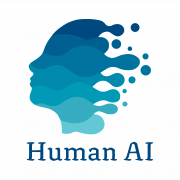Soft skills and university retention: how to prevent dropouts in the early years of a degree program
Beyond grades
University dropout remains one of the biggest challenges for higher education. Each year, thousands of students interrupt their studies for reasons that go beyond economic or academic factors. Scientific evidence shows that socio-emotional competencies—the so-called soft skills—are among the most powerful predictors of retention and academic success.
Understanding and measuring these skills from the early years of a degree program can make the difference between a student who adapts and thrives and one who becomes disengaged from the university environment. The OCEAN model, widely validated by personality psychology, provides us with a clear guide to understanding how traits such as conscientiousness, emotional stability, and openness to experience directly influence university retention.
Responsibility: The Foundation of Academic Success
The Conscientiousness dimension encompasses traits such as self-discipline, perseverance, orderliness, and deliberation. Numerous studies confirm that these factors predict academic performance even more than IQ.
In fact, responsible students tend to exhibit better time management, consistent study habits, and greater self-efficacy.
Among the key competencies, the following stand out:
Self-discipline: the ability to stay focused despite boredom or distractions.
Need for achievement (grit): perseverance to reach demanding goals.
Order and organization: clear structures that reduce anxiety and the risk of dropout.
Academic self-efficacy: confidence in one’s ability to achieve goals.
Emotional stability: the foundation of resilience
Emotional stability, understood as the ability to remain calm and recover from adversity, is another major predictor of academic persistence.
Students with greater resilience and emotional regulation tolerate pressure better and show less vulnerability to stress.
University wellness programs and mindfulness or emotional management strategies have been shown to significantly reduce exam anxiety levels and increase feelings of control and self-efficacy.
In practical terms, fostering emotional regulation not only prevents dropout but also contributes to a healthier and more cooperative university community.
Kindness: integration and belonging
The competencies associated with Kindness—such as empathy and cooperation—strengthen the sense of belonging, a key factor in preventing isolation and dropout.
Data from the OECD Survey on Social and Emotional Skills confirm that students with high levels of empathy, cooperation, and trust have better social relationships and greater life satisfaction.
Fostering teamwork spaces, peer tutoring, and collaborative projects enables students to build emotional support networks, which are especially crucial in the early years of university.
Openness to experience: a driver of curiosity and motivation
Openness to experience, which includes intellectual curiosity and a willingness to learn autonomously, drives intrinsic motivation and creative exploration.
Recent studies show that curiosity is one of the best predictors of deep and sustained learning.
Environments that stimulate exploration, creativity, and early research foster an emotional connection to knowledge and, therefore, greater academic persistence.
Measure to Improve: The Role of Artificial Intelligence
The great challenge is how to measure and strengthen these competencies objectively and continuously.
At Human AI, we have developed a scientifically validated approach that evaluates more than 35 socio-emotional competencies thru natural language, without resorting to traditional tests.
AI applied to language analysis enables the evaluation of self-discipline or self-efficacy levels in students’ own writing, generating a clear map of strengths and areas for development. By analyzing texts written by the students themselves—for example, reflective essays or open-ended responses—AI can identify linguistic patterns associated with traits such as resilience, empathy, or self-discipline.
This analysis generates personalized reports with practical recommendations, enabling faculty to design specific support from the very beginning of the program.
Experiences applied in schools and vocational training centers (Jesuitinas Pamplona, CIFP Carlos III, Red Itínere) have shown that measuring soft skills helps provide a starting point for understanding and enhancing emotional well-being.
From Data to Human Development
Preventing university dropout is not just a matter of academic policies, but of understanding the person who learns. Measuring socio-emotional competencies from the earliestyears allows us to anticipate difficulties and personalizesupport. Because talent doesn’t depend solely on IQ, but ona range of skills that we can all learn, practice, andstrengthen.
Socio-emotional competencies continue to be the realdifferentiator. The good news is that, thanks to science andapplied artificial intelligence, today we can measure them,develop them, and turn them into strategic allies foracademic and personal success.
Preventing dropout doesn’t start when a student leaves… but when we help them stay.





